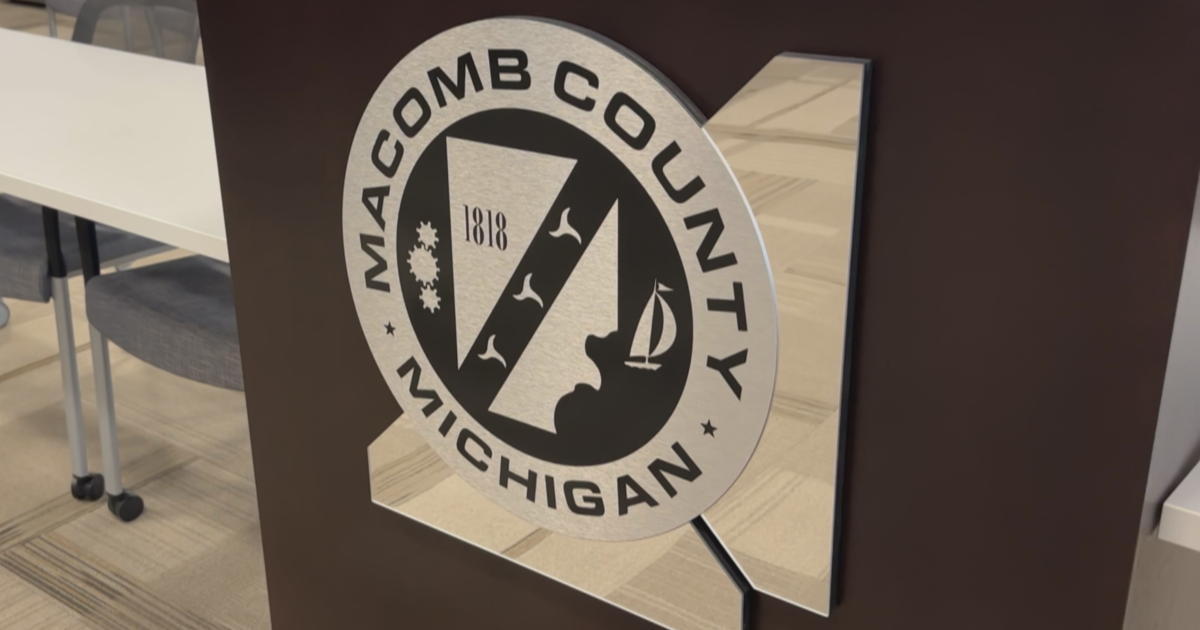Borders Filing For Bankruptcy
ANN ARBOR (WWJ/AP) - It's been long rumored, and now it's been confirmed: Borders is ready to start the bankruptcy process.
The bookseller has announced plans to close one-third of their existing stores, which is just over 200. Locally, the stores slated to close include the locations on Utica Park Road in Utica, on Mercury Drive in Dearborn, on Kercheval in Grosse Pointe and on Washtenaw in Ann Arbor.
Reporting live on WWJ Newsradio 950, WWJ and Fox 2 Business Editor Murray Feldman talked about what it all means:
First of all, will Border's continue to survive in some form? Murray said the answer is yes, because filing for bankruptcy gives the company a new lease on life. As we all learned from the automotive industry and Bankruptcy 101, the company live on in a slimmed down state; but, sadly, thousands of employees will probably be losing their jobs.
Murray went on to say that people who owe Borders money will stand in line now to get compensated; they'll probably just get pennies on the dollar. People who hold the company's stock will likely get nothing when it's all said and done because as was learned with the auto industry, those shareholders are actually owners of the company and they're the last to be compensated when everything is divvied up.
What happened to Borders? They just didn't embrace technology early enough, according to so many analysts. The online retailers got the best of their business; companies like Amazon. They tried to appeal to people who were getting their printed material online; that didn't work. They were too late in the game, and the company that began on the (U of M) Ann Arbor campus back in 1971 goes into bankruptcy court, Murray said.
WWJ Newsradio 950's Ron Dewey spoke with patrons standing in line outside the Birmingham Borders, Wednesday morning, waiting for the store to open.
The customers were bummed, but not phased, by news of the chain's bankruptcy. "I think a lot of stores have been closing lately, so it doesn't necessarily surprise me," one woman said.
At least one customer did not seem overly concerned. "Well, life will go on. I mean, I'll still survive. I do a lot of my shopping on the Internet," he said.
Mickey Lutes is a Royal Oak chef who likes the culinary section of Birmingham's Borders. He says Internet shopping is a big reason for the chain's financial woes. "It's all on the Internet...I think it's a great luxury, but it puts the little guy out of business," he said.
Lynn Benneck of Detroit has been a customer of Borders the past couple of years. She and her group like to hold meetings at the store in Birmingham. Benneck finds it hard to believe the company could be in such trouble. "I like to go to a book store, read a book, go through it, deal with people," she said. "I know people like to do a lot of business over the Internet, but I'm not one of them."
Clearance sales could begin as early as this weekend, according to documents filed with the U.S. Bankruptcy Court in New York. Borders said it is losing about $2 million a day at the stores it plans to close.
Cautious consumer spending, negotiations with vendors and a lack of liquidity made it clear Borders "does not have the capital resources it needs to be a viable competitor,'' Borders Group Inc. President Mike Edwards said in a written statement.
Borders plans to operate normally and honor gift cards and its loyalty program as it reorganizes.
The company will receive $505 million in debtor-in-possession financing from GE Capital and others to help it reorganize.
According to the Chapter 11 filing, Borders had $1.28 billion in assets and $1.29 billion in debts as of Dec. 25.
It owes tens of millions of dollars to publishers, including $41.1 million to Penguin Putnam, $36.9 million to Hachette Book Group, $33.8 million to Simon & Schuster and $33.5 million to Random House.
It's significant that Borders could not reach an agreement with creditors and file a "prepackaged bankruptcy," said Nejat Seyhun, a bankruptcy expert at the University of Michigan.
It could be a sign that creditors do not believe Borders will be a "viable operation going forward,'' Seyhun said.
Activist investor William Ackman, whose Pershing Square Management Co. has a nearly 15 percent stake in the company, also stands to be a big loser. Shareholders are often wiped out in a reorganization.
He offered to finance a $16-per-share Borders-led takeover bid for rival Barnes & Noble in December, but nothing materialized.
The filing was expected, but it is far from clear if it will be enough to save the company.
"They are going to have to be an entirely different company than the one that went into bankruptcy protection if they want to emerge successfully,'' said Jim McTevia, managing partner of turnaround firm McTevia & Associates in Bingham Farms, Mich.
It has been a long fall for the company, which 15 years ago appeared to be the future of bookselling.
Big-box bookstores have struggled as competition has become increasingly tough as books become available in more locations, from Costco to Walmart, online sales grow and electronic books gain in popularity.
Borders also suffered from a series of errors: failing to catch onto the growing importance of the Web and electronic books, not reacting quickly enough to declining music and DVD sales, and hiring four CEOs in 5 years without book-selling experience.
"Books and content just became so available at so many other locations, online and offline, the 'grow, rinse, repeat' mindset just wouldn't work anymore,'' said Michael Norris, senior trade analyst at Simba Information.
In addition, Americans are simply buying fewer books. Sales fell nearly 5 percent in 2010 to 717.8 million from 751.7 million last year, according to Nielsen, which tracks about 70 percent of book sales but doesn't include Walmart stores.
The Associated Press contributed to this report.



